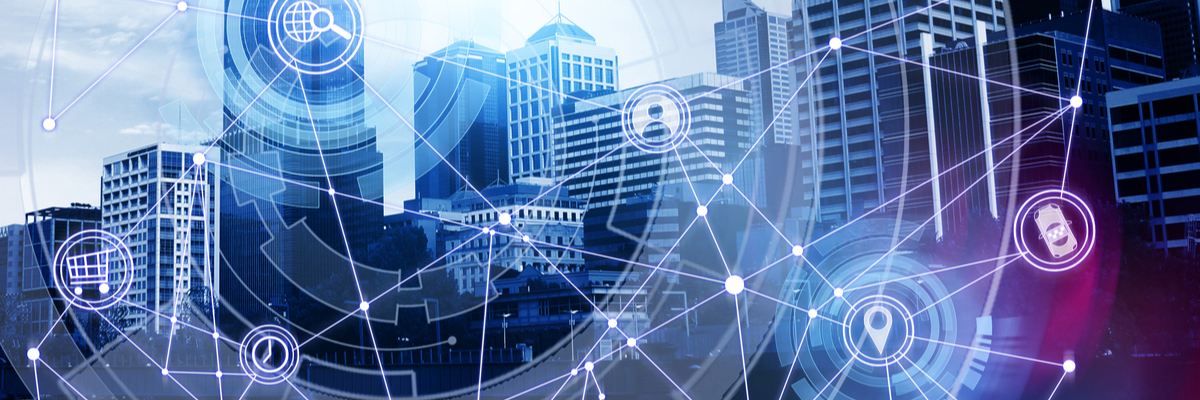ERP Systems Can’t Keep Up with Modern Business Demands
The Enterprise Resource Planning (ERP) solution was a game changer - way back when - but even the most ardent supporter of the system would admit the much-adapted solution remains unable to incorporate everything critical to today’s business needs.
The cloud remains the present and future for ERPs, which now cover nearly every aspect of business. The modern ERP systems - today’s digital operations platforms (DOP) - reflect a more agile, artificial intelligence-based and experience-driven environment. Improvements include advanced reporting, analytics, BI tools and functionalities and the availability of real-time data on the go.
It’s not that the ERP solution is no longer relevant, but amid today’s fractured financial landscape of complex business models, needs and expectations, it’s not the dominant player it once was.
Legacy providers such as Oracle, SAP and NetSuite can manage your supply chain and serve as a general ledger but aren’t the answer for companies selling products and services on a recurring basis - so, really, most relevant business models today.
As noted by Gartner in its initial report on the topic, titled Competitive Landscape: Cloud Subscription and Recurring Billing Management, those traditional solutions “are good at billing one-time sales, but more often than not, they are unable to support these new digital business models.”
“By 2022, we expect Agile Billing to displace over 15% of incumbent billing solutions.”
That comment is attributed to the report, Agile Billing Buyers Guide - Market Ratings Report, by MGI Research, which highlights billing as one of the most crucial elements of modern finance and business infrastructure, yet a challenge for most, fostering internal inefficiencies, faulty reporting and forecasting and revenue leakage.
MGI noted the more progressive organizations are solving these challenges,
“by moving billing out from the back office and repositioning it to function as a strategic enabler and accelerator of monetization innovation and frictionless customer experience. Speed is the new black, and agile billing is a competitive advantage in today’s ever-changing market".
Traditional business models, anchored by CRM and ERP systems, are unable to address the complexity and demands of new models. Today’s subscription billing model, which must factor in everything from quoting to ordering and fulfillment, is unable to be contained within such a linear process, requiring instead an agile system capable of rapid responsiveness to literally thousands of daily customer events.
ERPs were designed to serve as a repository of data, but only the most basic, and certainly not to the extent necessary to process today’s most prevalent model of recurring transactions. As alluded to earlier, these systems are lacking in some necessary data fields, including, but not limited to, serial numbers (essential in the context of renewals), contract end dates (renewal pre-planning needs) and historical sales and contract information.
The functionality to generate quotes, the backbone of the renewal process itself, is simply not a part of the ERP domain.
ERPs were built to be a generator of reports, but financial report output, not as the purveyor of transactional details necessary to track and bill for the usage-based consumption models of the present. Without the bolt-on of specialized integrated systems, critical invoicing details such as user numbers or session frequency will go missing. And don’t even get us started on the nimbleness required to track all stages of a recurring revenue transaction to closure.
Today’s technological advances in digital solutions are able to accommodate bolt-on applications that operate with legacy systems to connect silos of information and unite fractured members of IT and business teams. The choice to defer an unwieldy transformation process over concerns of having to entirely replace an ERP system is an outdated one.
The availability of robust, flexible and integrated automation solutions capable of being retrofitted into existing infrastructure means the options remain to make the change in the big bang method or slowly, over time to meet a company’s needs both now and in the future.
Regardless of the method and speed of transformation chosen, the clear need is a comprehensive solution that can manage all the complexities associated with today’s digital business models.
This series of mission-critical business processing gaps in the modern nerve center of your enterprise - the middle office space between the ERP’s back office domain and the front office - will only expand over time. RecVue offers the industry’s only suite of Order Lifecycle Management (OLM) solutions purpose-built to address these growing gaps. Built from the ground up for the middle office needs, the complete OLM suite automates all aspects of order-to-cash processes delivering billing, revenue management and channel partner compensation in a single solution.
Contact us today to learn how RecVue’s OLM solutions can give your organization the smart monetization edge to make you future ready. Don't let billing get in the way of your business success!

